Judge Mehta’s Ruling that Donald Trump May Have Aided and Abetted Assaults on Cops Is More Important Than His Conspiracy Decision
As I laid out here, Judge Amit Mehta rejected Trump’s motion to dismiss three lawsuits against him last week. Click through for my explanation of why it matters that Judge Mehta — among the most respected of DC judges — issued this decision.
But there’s another reason why it matters that Mehta issued this ruling.
I was, frankly, unsurprised that Mehta ruled for plaintiffs on their claims that Trump entered into a conspiracy with two militias to attempt to prevent the vote certification. I’ve been laying out all the evidence Trump could be included in a conspiracy with the militias to obstruct the vote count for some time. And on a motion to dismiss, the judge must assume all the alleged facts were true and only tests those claims for plausibility. Mehta didn’t rule that Trump did so; he ruled that plaintiffs will have a chance to make that case.
I was far more surprised that Judge Mehta also ruled it plausible that Trump aided and abetted the actual and threatened physical assaults committed by the rioters. Here’s how Eric Swalwell’s suit argued that Trump abetted the threatened attacks on Members of Congress, including Speaker Pelosi:
240. Many individuals in the mob either carried weapons or used objects such as poles and fire extinguishers as weapons before and after entering the building. Some individuals in the mob also carried restraints such as plastic handcuffs and rope.
241. The mob also unlawfully and intentionally entered non-public areas of the Capitol building, including the members’ private offices. Members of the mob damaged and vandalized personal and public property and stole documents, electronics, and other items from some members’ offices.
242. As the mob made its way through the Capitol looking for Members, participants threatened to kill numerous individuals, including, but not limited to, Vice President Mike Pence and Speaker of the House Nancy Pelosi. The mob terrorized and injured scores of people inside and outside of the Capitol, including the Plaintiff.
[snip]
248. Before directing the mob to the Capitol, the Defendants instructed them to “fight like hell,” “start taking down names and kicking ass,” and that it was time for “trial by combat.”
249. The Defendants intended these words to be taken literally.
250. For several hours after the mob had stormed the Capitol, the Defendants refused to communicate anything to the mob that might discourage continued unlawful action.
251. The Defendants knowingly and substantially assisted in the assault that was perpetrated upon the Plaintiff. The Defendants riled up the crowd and directed and encouraged the mob to attack the Capitol and seek out members of Congress and assault them.
Here’s how Capitol Police officer Sidney Hemby, described being assaulted while trying to protect the East doors of the Capitol in his lawsuit with James Blassingame.
63. Officer Hemby ran to the East Front stairs to try to stop the crowd, but it was too late, and the crowd was too large and aggressive.
64. The crowd chased him and his fellow officers to the top of the stairs and forced them against the doors.
65. At 1:49 p.m. 1 , after Trump had returned to the White House, and was reportedly watching on TV as events were unfolding at the Capitol, he tweeted out the entirety of his speech:
66. At 1:59 p.m., insurrectionists pushed Capitol Police to the top of the east Capitol steps, and by 2:10 p.m., insurrectionists began attempting to break into the building through windows on the west side.
67. Officer Hemby was crushed against the doors on the east side trying to hold the insurrectionists back. Over and over, he tried to tell the insurrectionists that the doors opened outward and that pressing him into the door would do no good.
68. But the insurrectionists continued to scream, “Fight for Trump,” “Stop the Steal,” and various other slogans, as they struck him with their fists and whatever they had in their hands. Things were being thrown at him, and he was sprayed with chemicals that irritated his eyes, skin, and throat.
Judge Mehta rejected Trump’s bid to dismiss those arguments.
Next, the court takes up Plaintiffs’ common law assault claims based on an aiding-andabetting theory of liability. Swalwell Compl. ¶¶ 237–252; Blassingame Compl. ¶¶ 163–168. President Trump’s motion in Swalwell does not separately address the aiding-and-abetting-assault claim, but he extensively addresses it in his Blassingame motion. See generally Swalwell Trump Mot.; Blassingame Trump Mot. at 33–40. The court will exercise its discretion and consider those arguments in both cases.39
Halberstam v. Welch remains the high-water mark of the D.C. Circuit’s explanation of aiding-and-abetting liability. The court there articulated two particular principles pertinent to this case. It observed that “the fact of encouragement was enough to create joint liability” under an aiding-and-abetting theory, but “[m]ere presence . . . would not be sufficient.” 705 F.2d at 481. It also said that “[s]uggestive words may also be enough to create joint liability when they plant the seeds of action and are spoken by a person in an apparent position of authority.” Id. at 481–82. A “position of authority” gives a “suggestion extra weight.” Id. at 482.
Applying those principles here, Plaintiffs have plausibly pleaded a common law claim of assault based on an aiding-and-abetting theory of liability. A focus just on the January 6 Rally Speech—without discounting Plaintiffs’ other allegations—gets Plaintiffs there at this stage. President Trump’s January 6 Speech is alleged to have included “suggestive words” that “plant[ed] the seeds of action” and were “spoken by a person in an apparent position of authority.” He was not “merely present.” Additionally, Plaintiffs have plausibly established that had the President not urged rally-goers to march to the Capitol, an assault on the Capitol building would not have occurred, at least not on the scale that it did. That is enough to make out a theory of aiding-and-abetting liability at the pleadings stage.
39 President Trump contends for the first time in his Swalwell reply brief that aiding and abetting a tort is not a recognized cause of action under District of Columbia law. Swalwell Trump Reply at 25–26. That argument comes too late, and the court declines to consider it.
Again, this is just the first step. It will be appealed. This is not a final ruling. But Mehta’s decision means that both sets of plaintiffs may get a chance to hold Trump accountable for the violence attempted or committed by people who responded to the President’s command to, “fight like hell.”
This part of Mehta’s ruling is far more important than the conspiracy side. To understand why, consider some of the cases over which Judge Mehta is presiding, which would be what he might have in mind when he thinks of what it means that Trump may have abetted assaults.
Landon Copeland
Landon Copeland is an Iraq War veteran with PTSD that has contributed to some epic meltdowns in court hearings. He traveled to DC on January 6 from the Four Corners region of Utah, taking a full week off work. He said he made the trip, he told the FBI, because President Trump ordered him to be there.
The defendant said that he traveled to the Capitol in part because former President Trump ordered him and others to be there.
Copeland went to Trump’s rally, then went with the crowd to the Capitol. He’s a really big guy and is accused of several assaults at the first barricades.
At the front of this crowd, the defendant shouted at the officers; he was visibly angry. Shortly thereafter, another rioter approached a police officer, began shouting at the officer, and put his hands on or around the officer’s neck. Copeland pushed that other rioter, from behind, into the officer, causing that officer to fall to the ground. After this, other officers stepped forward in an apparent attempt to protect the fallen officer. Copeland grappled with and pushed them, grabbing onto one officer’s riot shield, another officer’s jacket, and then pushing against the riot shields of two other officers.
Thomas Webster
Thomas Webster is a former Marine and retired NYPD cop who traveled to DC from New York with a revolver, a bullet-proof vest, and some MREs. While he claims he left the revolver in his hotel room, he wore his bullet proof vest to the rally at the Ellipse, then walked to the Capitol, carrying a Marine flag. After verbally attacking one of the cops at a barricade, he pushed over it, wrestled the cop to the ground, and grabbed his helmet, seemingly (though not in fact) gouging the cop’s eyes.
Shane Woods
Shane Woods drove to DC from Illinois on January 5. Like the others, Woods went to the Trump rally and then walked with the crowd to the Capitol. In some of the early fighting at the west side of the Capitol he is accused of tripping a female cop.
Then, a few hours later, Woods was involved in a group attack on some media, allegedly tackling a cameraman in similar fashion to the attack on the cop.
Peter Schwartz
Peter Schwartz is a violent felon who traveled to DC while out on release from prison because of COVID. Schwartz is accused (along with a woman I believe to be his partner) of involvement in a range of assaults on cops protecting the Lower West Terrace and the Tunnel on January 6, including stealing mace from and then using it on cops and throwing a chair.
On January 7 he described his actions as being part of “What happened yesterday was the opening of a war. I was there and whether people will acknowledge it or not we are now at war.”
The Oath Keepers
As I’ve noted repeatedly, Mehta is also presiding over the Oath Keepers, who all entered the East door and therefore would be among those kitted out people who violently pushed past Sidney Hemby. A few of the Oath Keepers are individually accused of assault. For example, video shows veteran Joshua James fighting with a cop in the Rotunda, screaming, “Get out! … This is my fucking Capitol!”
But members of the Stack who pushed past Hemby as he was protecting that door are suspected of far more serious plans for assault. As Mehta noted in ruling for the pre-trial detention of Stewart Rhodes on Friday — the same day he issued this ruling — once the Stack broke into the Capitol, they split up, with part of the group trying to make it to the Senate and the other part going to Nancy Pelosi’s office.
The latter is of particular concern because, on Election Day, Kelly Meggs told his wife and kid he was “gonna go on a killing spree … Pelosi first.”
Then after he had gone to her office, he told someone (probably his kid again), that “we looked for[] her.”
Judge Mehta has good reason to suspect (and likely knows far more about how serious this plot was) that the Oath Keepers, after busting into the Capitol past Hemby, took steps to hunt down Nancy Pelosi, and possibly someone in the Senate, like Pence.
When Judge Mehta says he thinks it is plausible that Donald Trump abetted assaults and threatened assaults at the Capitol, he’s not speaking abstractly. Judge Mehta has a very specific understanding of the kinds of assaults that happened that day. Those were violent attacks on cops — several allegedly committed by military veterans and one by a retired NYPD cop. Those include a gratuitous attack on the media. It includes an attempt to hunt down the Speaker of the House.
With this ruling, Trump may be on the hook for such assaults civilly.
But given that the judge presiding over some spectacularly violent assaults that day has judged that Trump’s actions may rise to an aid and abet standard, it may make DOJ more seriously consider Trump’s exposure for such acts criminally.
Related Post
How Judge Amit Mehta Argued It Plausible that Trump Conspired with Two Militias
Judge Mehta Observes that Roger Stone’s Role on January 6 “May Prove Significant in Discovery”

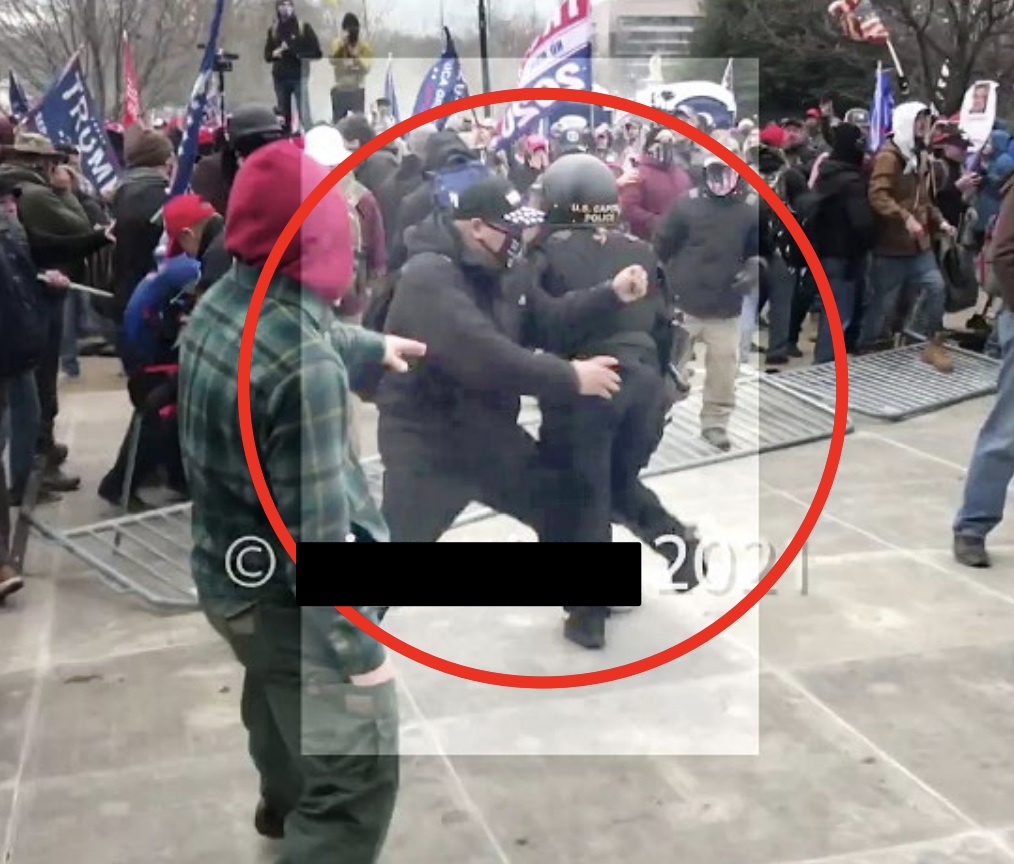
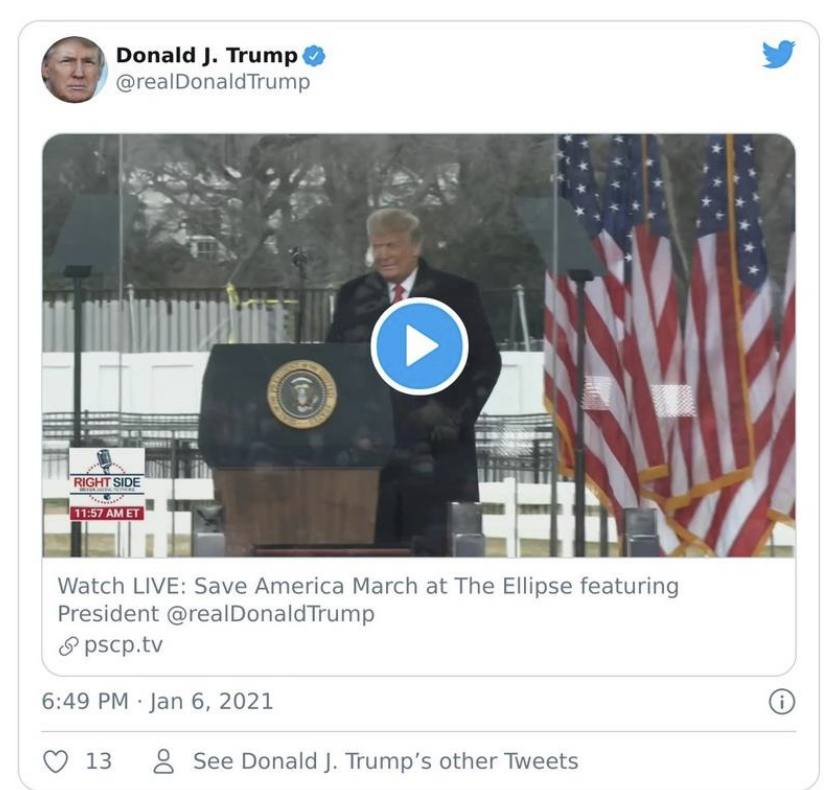
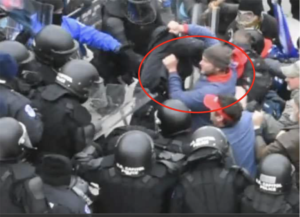
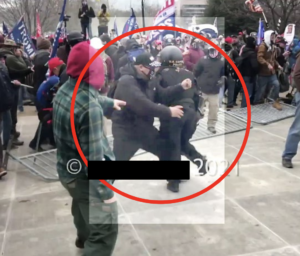
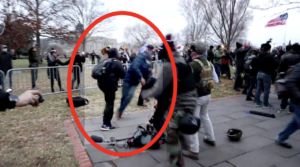
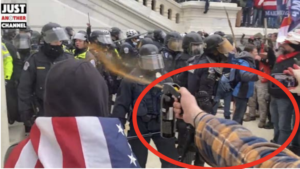
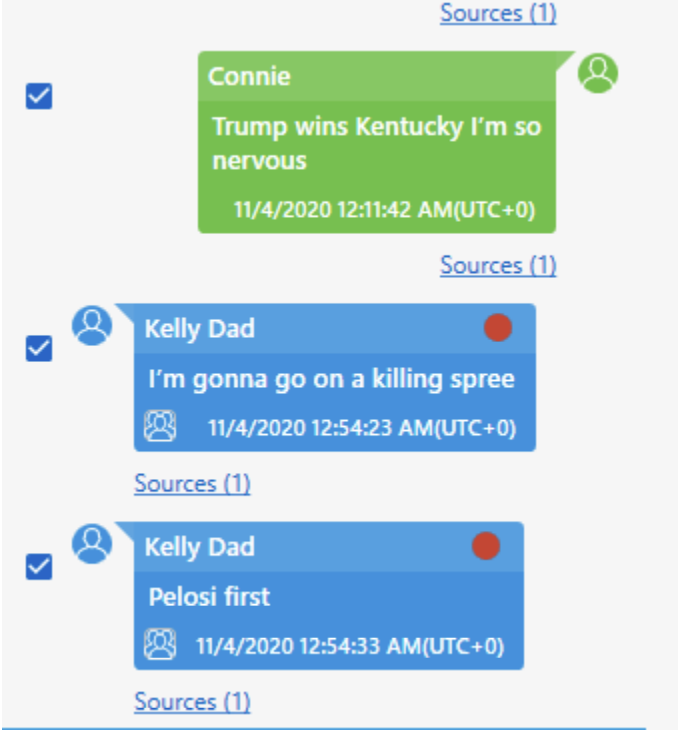
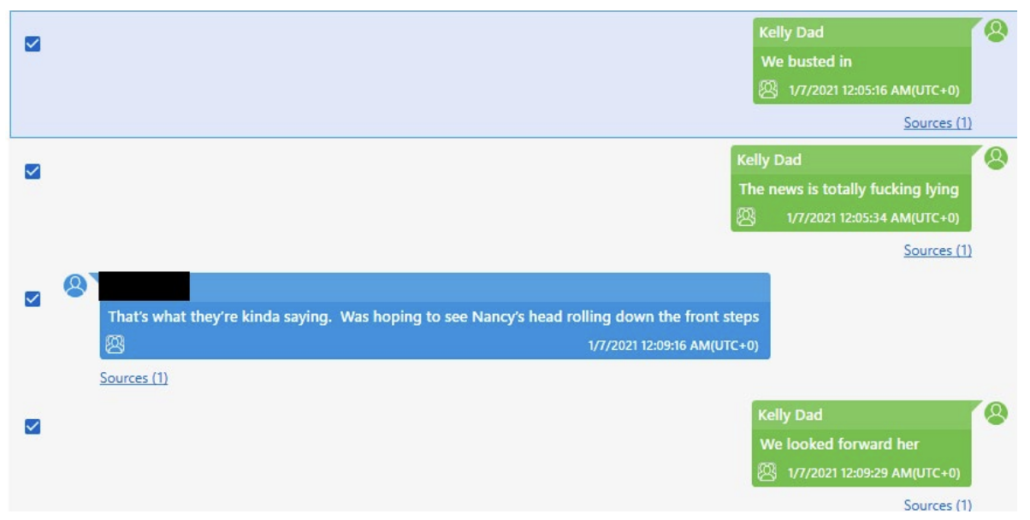



I agree that this is unexpected and important. Still, it appears to me that this one has much bigger hurdle at trial than the conspiracy does. The conspiracy ruling is based almost entirely on public and essentially undisputed evidence. In a trial, Trump will challenge the “intended to be taken literally” and that seems like a difficult one to prove.
We shall see. I think his ruling is vulnerable on the “not merely present” standard. Trump WASN’T present. But aiding and abetting is a ridiculously relaxed standard and I have good reason to believe that plaintiffs might get there with the attack on the East door and the Oath Keepers’ actions.
Right, and is less subject to a 1A defense, which I worry about more than most folks as it only takes one to hang the jury.
I guess then no mileage from Trump having told the rioters that he WOULD be there with them, implying they believed he was?
Excellent point. He specifically said something to that effect from the stage at the Eclipse…right before the riot that day:
https://www.youtube.com/watch?v=5fiT6c0MQ58
Is that an elliptical reference?
Heh, evidence can always be disputed at trial.
True… (remembering stories my daughter told me about taking CrimLaw from Dick DeGuerin … evidence can always be disputed).
Dick is a master at it. Oddly enough, I tried to refer another case to him this morning, but the case was in El Paso and just not going to work time and money wise.
Friend of mine met up with him in Houston in the 70s, while Dick was still with Foreman. Legal thing, cost friend a bunch, but kept him out of jail. (It involved Southwest Bell and entrapment.)
Dick is not cheap, but worth every penny.
*cough-cough*
*tsk tsk*
What can I say? I’m still twelve years old. LOL
Lol. I almost called him Dickie, but we are all getting old and that no longer seemed appropriate.
The law has long dealt with the ambiguous threats of the mafia wiseguy, and their habit of musing about turbulent priests who later wind up dead.
That’s possible. But regardless of the ‘intended to take seriously’, they *were* taking him seriously and he did nothing to stop it.
“President Trump contends for the first time in his Swalwell reply brief that aiding and abetting a tort is not a recognized cause of action under District of Columbia law. Swalwell Trump Reply at 25–26. That argument comes too late, and the court declines to consider it.”
This passage seems to refer to the failure of Trump and his legal team to raise an objection regarding DC law and the aiding and abetting of a tort in a timely manner. Is this need for timeliness codified in terms of a hard deadline? Can the argument be made that Judge Mehta should have given Trump’s lawyers more time to make this argument? I don’t know enough to know what’s grounds for an appeal and what is not. It just seems that this particular avenue of defense is given short shrift here.
Zirc
No. And it’s not the only example in his ruling where he notes that Trump failed to respond to a charge.
Trump has a bozo lawyer who did a shoddy job here as he did a shoddy job in the Archives challenge.
Trump’s lawyer wrote his brief with his client as the primary reader and Mehta as a secondary reader. While this might have pleased his client, it did the client no favor.
And only a fool of a lawyer would take this approach.
Just as he did with his White House staff, Trump has micromanaged his legal situation until only yes-people and sycophants will work for him. Additionally, although his WH staff was guaranteed payment by the Treasury, his lawyers aren’t, and I don’t have to tell you what his reputation is in that area.
So yes, fools for lawyers.
Fools for lawyers and a fool for the client, yes!
However, this method has worked for decades, unfortunately.
Yes, the procedural rules for civil (and criminal) cases are codified. In the federal system (each state has an analog), they’re called simply, the Federal Rules of Civil Procedure. An entire course is devoted to them in the first year of law school.
The general requirement in Rule 8(c) is that certain defenses – called affirmative defenses – must be raised by the defendant very early on, or they’re waived. The most well-known one is that plaintiff has failed to state a claim for which the court can grant relief (12(b)(6)). Here, it appears to be the affirmative defense that DC law does not recognize a cause of action asserted by the plaintiff.
Any competent civil litigator (or 2nd year law student) knows those rules by heart. Apparently, Trump’s lawyers don’t.
https://www.law.cornell.edu/rules/frcp
Regarding those rules…
a denial of a motion to dismiss is not a final decision on the merits and therefore not appealable now. There are some exceptions/work arounds, but it’s doubtful they a) can be navigated by the — ahem — quality lawyers representing Trump or b) will succeed.
I think Trump is entitled to an immediate appeal under the collateral order doctrine, but it is limited to the District Court’s denial of his claim of immunity.
Dismissing defendant’s motion to bar plaintiff’s claim on account of the motion’s lateness is not a final resolution. It does allow plaintiff’s cause of action to continue, and be resolved through discovery, further pleadings, and/or trial.
Trump would have his day in court – precisely what he wants to avoid – and his defense might be successful. So, I don’t think the collateral order rule would apply.
The collateral order doctrine applies to a trial court’s denial of a claim of immunity. See Mitchell v. Forsyth, 472 U.S. 511 (1985). The other issues must be presented posttrial.
This is what matters most to me :
“250. For several hours after the mob had stormed the Capitol, the Defendants refused to communicate anything to the mob that might discourage continued unlawful action.”
If a President were to be deemed as carrying out his constitutional duties, this inaction seems utterly incompatible with such an assessment. Trump’s legal team makes all sorts of arguments that he was carrying out duties, yet somehow if he is SO diligently doing so, this one escapes him. It’s not by accident. It is 100% by design. Especially in light of the follow up of “going home in love and peace” blah blah.
Ding, ding, ding…
And his prior statements/tweets telling his supporters to “be there: will be wild”.
Does this increase the likelihood of more civil suits related to 1/6? I think MW has detailed the way the understanding of 1/6 has expanded a lot since this particular effort was launched many months ago.
I’m wondering if either suits against Trump, or suits against others between Trump and the actual attackers, are more likely to be filed now. I know Giuliani and Don Jr. were taken off the table by Mehta, but I don’t know if they or others might have new exposure due to evidence that wasn’t brought up by this suit.
I recognize that time may be an issue here, and that any suit filed now may only get to this stage well after it is useful to prosecutors and the 1/6 Committee. But I don’t know if there are other issues at play which make further suits more or less likely.
I think a lot of progress has been made, especially with respect to tying the threads together to make it clear what the story is, how the events that day came to look the way they did, and that it wasnt just some riot, but rather a bunch of riotous tools incited to cover and obscure some very specific criminal intentions and acts.
But with one year down, and effectively two remaining (before Trump brings up the BS about his running for office somehow making all this investigation illegal, etc.), plus multiple levels of courts to deal with the certainty of sequential appeals, it means it’s already time to focus resources on the most profitable paths to saving Democracy from this still growing malignancy.
You only get one shot at this really, so make it a good one. This is what I don’t get about the constant whinging about Garland not doing his job. There is no f-ing point of trying to roll this up now and take a shot with so much time left in the game. The question really is will we have enough time to even get the one shot to put enough of the pieces of the conspiracy together – obviously, that is putting Trump, Stone, and the Willard together in concrete plans with the scum of the earth white nationalist militias.
This reminds me of the feeling you get when you watch an NCAA game, and it seems like there is a ton of time to just get one basket, down by one point. Yet somehow, all sorts of things conspire, and the shot is never taken. That is what I don’t want, and what I fear most, but given two years or so to go, with any luck a solid case or cases can be made. In the meantime, as Marcy so helpfully pointed out, there is a ton we can do to make progress in other ways, while we wait for the legal teams to do the legal groundwork.
I just shudder to think how impatient the lil peeps will get as we slog through this for so many months without indictments. No matter how many friggin time you explain to them what DOJ is trying to accomplish, they remain impatient and whingy. It’s maddening really. They are incapable of learning, of they just LOOOVE their twitter presence and how they rile up the masses.
On the plus side, I suspect in that interim, we’ll get a Gaetz indictment early on, and perhaps a few other small victories to make it seem as if progress on cleaning up the sewer is being made. So there’s that.
So, you are of the opinion that “saving democracy (and, yes, it is with a small d)” entails blowing up investigatory standards, due process and fundamental fairness? That is how you will “save” democracy??
Yeah, sure, let’s worry about “impatient peeps” like you on the internet. And find “profitable paths”. Seriously? Do you understand how insane that little rage really is? Good fucking grief. You have learned absolutely nothing with your time here, have you?
I was awaiting your response, thanks.
I’m not suggesting blowing up investigatory standards, sorry. I’m just recognizing that each time I read the news of a victory in one court, then I have to think, what is the next court where the appeal happens, how long does that take? Maybe I have to say it outright, that I am actually patient and hopeful, and I believe in the process. I’m clearly not a lawyer, so I don’t have a good feel for how long these processes take.
Yet you must admit, the entire process is quite suspenseful and if we don’t manage to have justice served, we end up in a pretty bleak place with respect to D/democracy. (sorry for the capital D earlier, I am referring to the path to autocracy in the US, which would be a bad omen for democracy around the world generally. I don’t know the rules for D vs d, sorry. ) One can be patient and still worry that the conspiracy never comes to justice. As you can see from recent news, the world around you can unravel pretty quickly.
I can understand that a complicated process with so many defendants takes a very long time. No problem with that at all. I am miffed that I continue to read from the talking heads as to how impatient they still are when it has been explained why the process runs the way it does. Having a lack of understanding for how long this might take based on appeals doesn’t necessarily mean I’m pissed that it’s not going fast enough. It goes at the pace it goes, where it ends, we shall see. When I say “profitable paths” I just mean that we don’t have unlimited judicial resources or unlimited time. So as to what BobCon was saying, I think you have to focus and some small fries may evade justice because there are bigger fish.
By the way, I’m not raging. I’m quite calm. You will never hear me say “speed this shit up” or anything like that. And you wont hear me say Garland needs to be canned, etc. I’m not on that team. And I don’t have a social media presence where I make any statements about any of this. I read twitter, but don’t interact. It’s just the links that are sometimes useful for me.
Fair enough, but the process is as important as the outcome. A lot of people tend to forget that such really is “the rule of law”.
Thanks. The process is essential to the outcome, yes. Without faith in the process, the outcome would be tainted. Given the tendency for the people defending the insurrectionists to deny the reality before their eyes, we need to have overwhelming evidence and sound process to break down that resistance. In this case, that makes the process that much more important, since there are so many participants, and we need to understand the motivations behind the vast majority of them to understand what happened that day. There can be no plausible story by any of them as to what their role was, or that that this was something other than what justice ultimately proclaims it to have been.
Sadly, even with the insurrections sleuths trying to photo ID all the people that day, some of them will probably slip through the cracks, which really pisses me off. Hopefully none of them are important to the bigger story. But I think at this point, many of the important players (but certainly not all) have been identified. At least enough to make it clear what the story is, what was really going on underneath the cover of the riot.
The other thing that is great about a slow process, and we’ve seen it here thanks to Marcy, is how once evidence is uncovered from all these seemingly unimportant people, they can provide ways to ratchet up the pressure on some of the more important participants that we need to cooperate to get at the big fish. I’ll admit it’s hard not knowing what Mehta and others know, but again, that’s the part of the process. I’m not meant to know that, and neither is anyone else. They just have to have faith that the process is working. I do have that faith.
I find it often amusing that people who don’t like to hurry up and wait for the rule of law to run it’s course have no idea how fast the law seems to catch up with the perpetrators. The guilty have a different sense of time than those waiting for justice to take place. Time is all too swift for them, ending their crime spree and putting them out of business.
I would argue that most of the story that the January 6th Committee needs to be told will be done by Tue, August 16, 2022, @ 7am. That is the date of the Wyoming Primary and I would think Liz Cheney will attempt to tell the story by then. The Wyoming Republicans are making it much harder to cross over vote as a pending bill will limit declaring Party affiliation to end on May 27, 2022 instead of August 16th.
FYI:
“Presidents Day with Marcy Wheeler” on Nicole Sandler Show today via Youtube:
https://www.youtube.com/watch?v=rV6q0ZHWliI
[Welcome back to emptywheel. SECOND REQUEST: Please use the same username each time you comment so that community members get to know you. You’ve published comments here as “Al Ostello” 27 times already. Furthermore, we’ve had numerous individuals posting as “Anon” and they’ve been asked to use differentiated names. Thanks. /~Rayne]
Thank you.
Well done, Marcy. And I really like your glasses !
Thanks!
There is no urgency with respect to these civil cases.
The US SpCt could prevent a trial based on either 1st Amendment principles, or some strained type of immunity. They could dismiss the cases to protect the former chief executive.That wouldn’t be shocking.
But unless that happens these cases will be moving through the process after the Committee develops a public record on most of these issues. Also the partial listing created by Ms, Wheeler includes some defendants who will either be tried, or have to make offense statements, before these cases are subject to more pretrial motions.
These plaintiffs probably win if they get a trial. The defendants might get a hung jury, but a defense verdict seems unlikely at this time.
These cases are going to keep the attempted coup in the news for some time.
Okay, you mention immunity in two comments in this thread — “The US SpCt could prevent a trial based on either 1st Amendment principles, or some strained type of immunity.”
What’s your theory since you feel strongly there must be one having brought it up?
I’m not referring to a logical legal construction, I am only referring to their power to save Donald Trump from a trial. I have no prediction on how they would do that.
I don’t know if the USSpCt can prevent a trial of these cases. All want to point out is that the factual record is going to be more public, and more thorough before they are likely to rule on the motions to dismiss.
I thought jury unanimity was only required for criminal cases not civil ones (but IANAL, especially in the federal system). However, while I think EW’s point about not being there is possibly a key one even if not raised immediately, I would suspect that there could be a ‘smoking gun’ communication inside the J6 Archivist data dump that would have cause and effect.
While EW’s note about failing to raise the defense in what are frequently boilerplate litanies of defenses (sometimes self-contradictory) is correct, I have no doubt that an attempt to carve out another exemption for Individual-1 will be made. He’s been busy with the rollout of his social media site (that allegedly pilfered the logo of a British trucking company), dontchaknow. One thing that is known about the 3 pet justices (plus Alito and Thomas) is their lack of concern over precedent or process when their patron needs protection.
Ms. Wheeler did not mention Judge Mehta contending with any DofJ arguments about an ex-President being immune from suit based on some immunity principle. Its a noticeable omission.
Mehta discusses this on pp. 23-41 of the ruling and says: “After careful consideration, the court concludes that, on the facts alleged, absolute immunity does not shield President Trump from suit, except as to Swalwell’s § 1986 failure-to-act claim.”
Ms. Wheeler discussed exactly that in the previous post:
Citations from Mehta’s opinion omitted here, but available at the previous post.
I don’t think Trump’s lawyers attempted to argue that in this suit, so Mehta did not have to discuss it.
Mehta did, as Marcy discussed in the previous post, knock down Trump’s attempt to claim that he was immune because he was acting in furtherance of his presidential duties at the time (Jan 6). Mehta was having none of that crap. As Marcy summed up that portion of Mehta’s opinion,
Judge Mehta dealt with it on his own. But the Justice Department doesn’t seem to be intervening to protect the office. There is no official government argument that inciting assault by private militias is within the scope of the President’s duties.
Since there is no government argument made on behalf of the office, that makes Judge Mehta’s job easier.
That may continue at the appellate level, but we don’t know.
The omission is only noticeable to you, because of your seeming obsession about the immunity that DOJ precedent affords to a President while in office. That’s while in office. Robert Mueller himself pointed out that nothing keeps a President from being indicted after he (or she) leaves office, for crimes committed, either prior to inauguration or while in office.
If the VSG (very stable genius) had shot John Kelly, instead of tweet-firing him, the DOJ would have probably refrained from indicting him until 20 January 2021. But he would be in a world of shit after that.
I’ve referred to criminal behavior, but the same applies to civil suite.
Where a president’s absolute immunity from suit for damages applies, it extends to ex-presidents as well. See Nixon v. Fitzgerald, 457 U.S. 731 (1982).
I don’t know where you suddenly appeared from, but do not gaslight this forum. Not only did Nixon v. Fitzgerald not hold that, Clinton v. Jones further established this. You are getting on thin ice.
Mr. Fitzgerald did not include Nixon as a defendant until after he left office. Nixon was held to have immunity. Clinton v. Jones involved conduct occurring before Clinton took office, and the civil suit was permitted to proceed. Nothing in Clinton addresses whether ex-presidents are immune from suit.
And nothing you are propounding establishes your position definitively. This is your last warning not to blow smoke on this forum. Mehta himself convincingly blows your bunk into the weeds, and explains exactly why in a very compelling fashion. Have a good night. And give it a rest.
I’m not blowing smoke. Page 24 of Judge Ahmet’s opinion, referring to Nixon v. Fitzgerald:
Judge Mehta went on to conclude that Trump’s conduct as averred by the Plaintiffs was plausibly beyond the outer perimeter of his official responsibilities as President.
Did you actually read the opinion? Because you are making my point.
Yes, I read the opinion. I am puzzled about what point you think you are making. Former President Nixon was entitled to absolute immunity when sued for damages by Ernest Fitzgerald. Former President Trump is not entitled to absolute immunity at the pleading stage in the instant three lawsuits, because the conduct underlying the damages suits is outside of his official duties.
Why do you think I have suggested otherwise? Where is the controversy here? Why are you being obnoxious?
Stop, I am done with you, and do not owe you squat for a further explanation. I did that already, and so did Judge Mehta.
“Ms. Wheeler did not mention Judge Mehta contending with any DofJ arguments about an ex-President being immune from suit based on some immunity principle.”
Trump’s lawyers asserted immunity, which Judge Mehta soundly rejected. DOJ did not appear in these actions.
Maybe one of our resident lawyers will contradict me, but I’d imagine that the DOJ intevening in a civil suit, when they’re possibly going to deploy the criminal version of those same charges, but haven’t worked their way up to charging anyone above the second tier of January 6th conspirators, is, to say the least, highly unlikely.